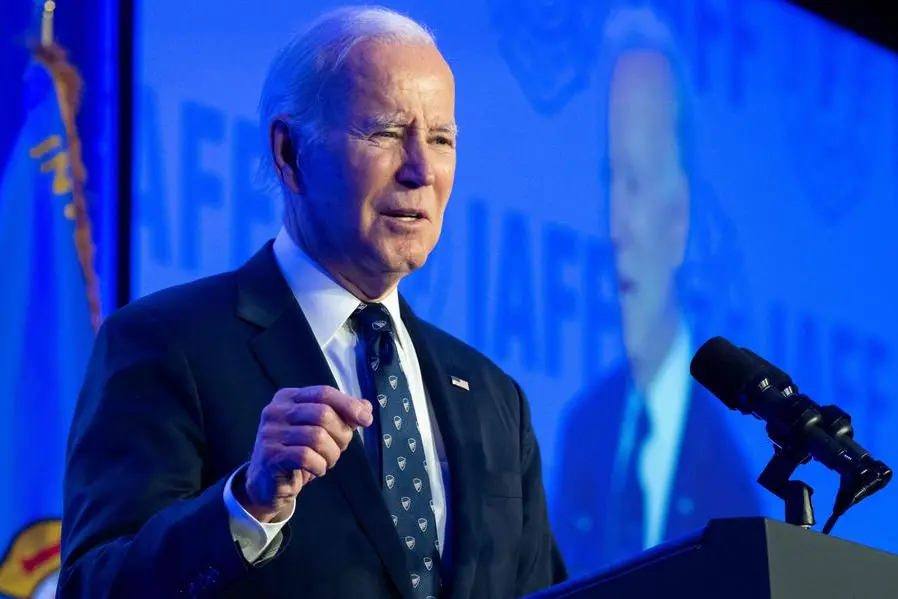PHOTO
President Joe Biden leaned harder into a -- still unofficial -- reelection campaign Tuesday, making a pitch to older, blue collar Americans with proposals to protect their health care by taxing the wealthy.
The first peek at Biden's budget blueprint -- to be revealed in full Thursday -- showed a strategy to extend the solvency of Medicare, the government-funded health insurance program for seniors "by at least 25 years" -- by raising taxes on upper tier households.
"Let's ask the wealthiest to pay just a little bit more of their fair share, to strengthen Medicare for everyone over the long term," the 80-year-old president wrote in a New York Times column accompanying the proposals.
With Republicans in charge of the House of Representatives, the Democratic president's proposals will face a bitter spending fight in Congress -- a situation Biden seems ready to wield for his political advantage.
"For decades, I've listened to my Republican friends claim that the only way to be serious about preserving Medicare is to cut benefits," he wrote in the Times.
"The budget I am releasing this week will make the Medicare trust fund solvent beyond 2050 without cutting a penny in benefits," he promised.
More than 60 million people in the United States, mostly those over age 65, rely on Medicare for their health insurance.
According to the White House, the program is at risk of running out of money by 2028 without intervention.
Biden's plan would increase the Medicare tax rate from 3.8 percent to 5.0 percent on income above $400,000 per year.
"These are common-sense changes that I'm confident an overwhelming majority of Americans support," Biden wrote.
"Republican plans that protect billionaires from a penny more in taxes -- but won't protect a retired firefighter's hard-earned Medicare benefits -- are just detached from the reality that hardworking families live with every day," he wrote.
Previewing a Republican line of attack, one lawmaker hit back immediately at the plan.
"Biden's budget does nothing to legitimately address lowering our debilitating national debt," tweeted Senator Mike Braun. "At some point, the numbers will catch up to us -- and that will be (a) very bad day for Americans."
- Fine-tuning the message -
Biden, who has said he "intends" to seek a second term but has not officially announced a reelection bid, is fine-tuning his message to appeal to a very specific demographic: working-class white people without a college degree -- and older voters in particular.
The Medicare proposal is an attempt to win some of them to his side in 2024 -- well aware that older white Americans have tended for the past two decades to vote Republican.
In 2020, Biden won the election in large part due to support from Black people and university graduates.
A recent Washington Post/ABC poll found that only 31 percent of voters without a college diploma are satisfied with his economic policy, against 50 percent among those with a degree.
In 2016 and again in 2020, around two-thirds of white voters without a college degree opted for Donald Trump, who has already launched a campaign for the next election.
Since his State of the Union address to Congress on February 7 -- seen as the informal start of his reelection quest -- Biden has worked to solidify an image of himself as a man of the people, a regular guy who can sympathize with families struggling to make ends meet.
He frequently references his father, who Biden depicts as an example of proud, hardworking folk, often saying to him: "Joey, a job is about a lot more than a paycheck. It's about your dignity."
Biden also regularly alludes to his no-frills childhood home in Pennsylvania -- three rooms for his parents, four children and a grandfather -- which he bills as certifying his middle-class credentials.
Trump for his part has developed his own plan to attract white working-class voters. In a speech Saturday to a conference of conservatives, he pounced on economic and social issues, insisting America is going down the tubes and only he can save it.
Billing himself as a defender of Social Security and Medicare spending puts Trump in position to take jabs at other potential Republican presidential hopefuls who favor leaner government spending.





















